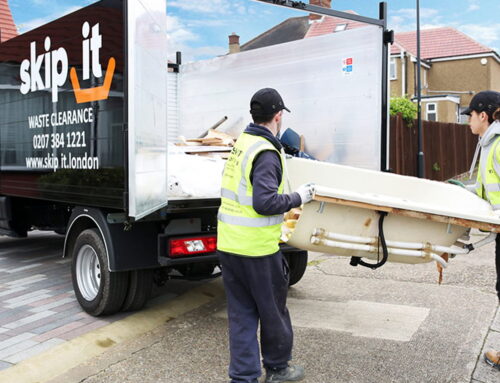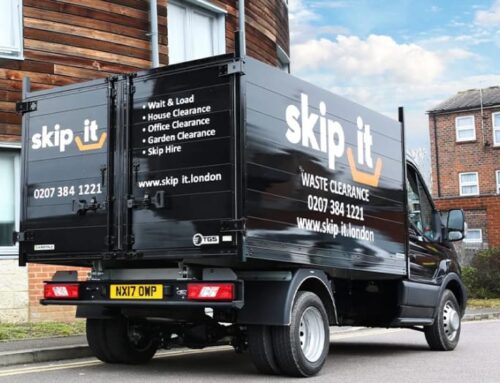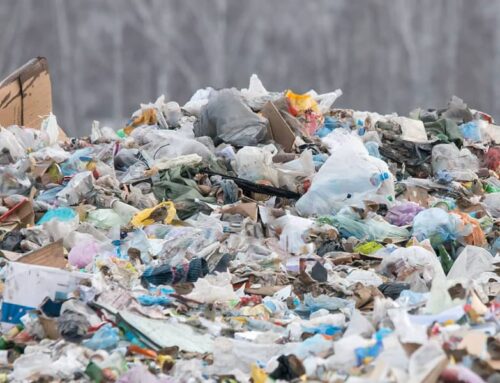Introduction
In the rapidly developing field of science and technology today, batteries are essential. We have smartphones and modern technology everywhere. They ease our lives, but eliminating them poses a whole other set of problems. Batteries must be rid of properly in order to avoid the release of dangerous chemicals.
As such, it is crucial to understand the importance of appropriately disposing of batteries and to have a link to reliable disposal services. Promoting environmentally friendly and secure battery disposal methods is a goal that Sutton Skip Hire Services is dedicated to. As a consequence, we will go over an array of battery kinds in this article, along with the symptoms of improper disposal and the steps you should take to get rid of battery waste in Sutton safely.
Understanding Battery Types
It’s important to understand battery types for safe disposal. This is due to the fact that batteries require various disposal techniques and have varying shapes and chemical compositions.
Primary batteries are made only once and are additionally referred to as non-rechargeable batteries. Zinc and manganese oxide are found in alkaline batteries, which are used in toys and other household electronics like remote controls. Medical equipment and gadgets are often powered by lithium batteries. Furthermore, zinc-carbon batteries, which are commonly used in flashlights, are inexpensive yet could be harmful to the environment if not properly disposed of.
Secondary batteries provide multiple benefits, but they also have a negative environmental effect that must be reduced and their lifespan must be properly maintained. High-density power is found in lithium batteries, which are frequently found in portable gadgets like laptops and smartphones. Subsequently, nickel-based batteries are utilised extensively in digital cameras. Vehicle lead acid batteries contain sulfuric acid, so it has to be handled carefully to prevent harm to the environment.
For effective methods to be implemented that lessen the negative impacts on human health, it is crucial to understand the features of these batteries.
Risks of Improper Disposal
The improper disposal of batteries poses a major risk to the environment and public health, which emphasises the importance of responsible waste management techniques such as the disposal of rubbish skip hire in Sutton.
When hazardous batteries are not rid of correctly, toxins leak out. These batteries release lead, calcium, and mercury, among other dangerous substances that seep into groundwater and soil and harm ecosystems.
These hazardous materials can pollute soil and water and endanger people’s long-term health when they spill into the environment. Appropriate disposal techniques become even more important due to the possible impact of contaminated soil and water on agricultural production and drinking water sources.
Burn dangers might arise from improper disposal techniques, especially if cells are damaged or exposed to high temperatures. Batteries made from lithium in particular are vulnerable to thermal runaway, which can cause the flames that, if not put out, might jeopardise lives or damage property.
Proper Disposal Methods
Appropriate disposal methods are crucial to minimising environmental harm and preserving public safety.
Recycling is one of the best methods to get rid of batteries. Batteries are accepted for proper disposal by local recycling schemes.
- Recycling is one of the most significant ways to get rid of batteries safely. Local recycling initiatives, which tend to be operated by waste management companies or local government organisations, take batteries for proper recycling. Moreover, a number of retainers enable users to dispose of spent batteries in various locations. By permitting consumers to use postal services to send their used batteries to recycling facilities, mail-back initiatives simplify the battery recycling process.
- Batteries can be brought to residential waste disposal facilities for environmentally friendly disposal, ensuring that all disposal is done with the environment in mind.
- Recycled batteries need less disposal and have a longer lifespan. Numerous organisations accept functional batteries for reuse in a range of goals.
It’s essential that you get rid of damaged batteries properly to prevent leaks and environmental risks. Obtaining professional skip hire services Sutton is essential for the proper elimination of damaged batteries.
Steps for Safe Battery Disposal
Multiple procedures are involved in safe battery disposal to guarantee environmental protection and minimise risk.
Getting ready:
Recognise the kind of battery you have and dispose of it properly to prevent combining related materials. Moreover, tape the battery terminals to guard against unintentional discharge and short circuits.
- Gathering and keeping: Batteries should be stored somewhere dry and cool to avoid leaks. A chemical reaction may result from combining different types of batteries, thus avoid doing so.
- Transport: When transporting batteries, use appropriate bags to avoid spills and damage. You are also going to have to take precautions to ensure that there is no damage during transportation.
- Method of disposal: Observe disposal regulations to guarantee that environmental rules are followed. Never pierce a battery since this could unleash dangerous chemicals and cause a fire.
- Endorsing Eco-Friendly Methods: Sustainable battery disposal is crucial to protecting the environment and public health.
Increasing awareness and promoting responsible conduct requires educating others on how to properly dispose of waste. Recycling batteries and disposing of them safely can help protect the environment.
You may dispose of waste properly by promoting battery recycling. In order to motivate people to take part in recycling initiatives, one ought to offer support for programmes that offer simple recycling processes and advantages.
By encouraging environmentally friendly recycling, we can help technologies with less of an impact on the environment become more sustainable. Choosing rechargeable batteries reduces their effect on the environment and contributes to preserving resources. For one-time battery usage, resources can be preserved by purchasing renewable storage and rechargeable batteries.
Concluding Remarks
To advance public health and environmental sustainability, it is essential to understand the many battery types and the dangers of improper disposal.
- Important parts have emphasised the importance of distinguishing between the two types of batteries as well as potential leakage and degradation hazards. When it came to suitable disposal techniques, the significance of using facilities that have been authorised and composting was highlighted.
- Because each person’s actions impact the environment as a whole, personal accountability is of the utmost importance when it comes to battery disposal. By actively participating in recycling programmes, educating themselves and others about safe disposal techniques, and conserving the environment, people may lessen pollution and preserve future generations.
- Adhering to proper disposal protocols is a prerequisite for a dedication to environmental stewardship. By emphasising sustainability, we can decrease waste, preserve resources, and choose environmentally suitable substitutes.







Leave A Comment